What Does It Mean to “Settle” an Injury Case?
When you get hurt in North Carolina and choose to pursue legal action through a personal injury case, it is not always a quick process. You will need to work alongside an experienced Charlotte personal injury attorney to help you prove your injuries and get you the compensation you deserve. That compensation will help cover…
Read More¿Me Deportarán Si Reclamo Por Mi Accidente De Auto?
Carolina del Norte es un estado industrial. Tenemos un clima estupendo, una economía próspera y unas vistas preciosas. Así que no es de extrañar que personas de fuera de nuestro estado, y de fuera de nuestro país, se trasladen aquí. Si usted es inmigrante, ya sea naturalizado o indocumentado, es importante que conozca sus derechos…
Read MoreHow Does a Deposition Work in a Charlotte, NC Car Accident Case?
Most car accident claims come to a settlement before they are brought to court. However, when there are cases that involve severe injuries, then a Charlotte car accident claim may have to go to trial. Victims of the accident will likely hire an experienced car accident attorney who will help them negotiate with insurance companies…
Read MoreCan Car Accidents Cause Peripheral Nerve Damage?
Even with the advancement of modern-day technology in cars, like pedestrian detection, blind spot monitors, and motion sensors to alert you if you are too close to another vehicle, accidents still happen. In fact, the North Carolina Division of Motor Vehicles released statistics stating that there were over 247,000 car crashes in 2020. And of…
Read MoreWill I Be Deported If I File a Claim for My Car Accident?
North Carolina is an industrious state. We have a great climate and a thriving economy and beautiful views. So it’s not surprising that people from outside our state, and outside our country, move here. If you are an immigrant, either naturalized or undocumented, it is important that you understand your rights when it comes to…
Read MoreHow Do I Read My North Carolina Car Accident Report?
After you’re involved in a car accident here in Charlotte, there’s likely a lot of chaos in the immediate aftermath of the collision. One of the most important pieces of evidence you’ll need later, however, is the accident report. This is the report taken by the responding police officer after the accident. You may hear…
Read MoreCan I Find Out How Much Insurance the At-Fault Driver Has?
After you’re injured in a car accident that wasn’t your fault, you typically file a claim with their insurance company for your medical expenses and other losses. However, when you file that claim, it’s important to remember that the insurance company does not represent you – it represents the at-fault driver. The insurance adjuster’s job…
Read MoreCan You Seek Damages If Your Loved One Suffered Before He or She Died?
It is always difficult to deal with the loss of a loved one. But when your loved one’s death was the result of a person’s wrongful actions, there are legal rights that you can exercise. If your loved one suffered before their death, you have the right to sue for their damages, too. Your loved…
Read MoreWhy You Should Always Get Medical Care Immediately After a Car Accident
Getting in a car accident in North Carolina can be a shocking, disorienting experience. However, the best thing you can do after a vehicular accident is to seek medical attention. In addition to receiving the proper treatment you require, getting immediate medical care is important for health, insurance and legal purposes. Vehicular accidents can cause…
Read MoreCan I Get Workers’ Compensation for PTSD in North Carolina?
Workplace injuries are common in every occupation. It is almost expected that a worker will experience some type of physical injury. But very rarely do workers consider workers’ compensation benefits for mental disorders caused by their occupations. There are occupations such as firefighters and construction workers whose dangerous nature can cause workers to experience PTSD.…
Read More